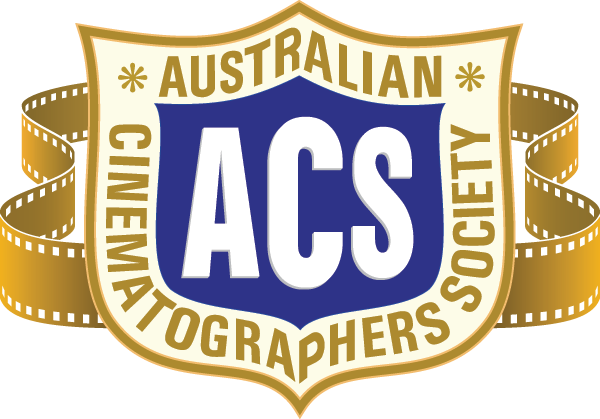Joan Churchill ASC Honored at Camerimage

Joan Churchill ASC

This past November, at the culminating awards ceremony at Camerimage Festival in Poland, Joan Churchill ASC took the stage and accepted the Award for Outstanding Achievement in Documentary Filmmaking. Churchill is the first female cinematographer to earn lifetime honors at the fest. Writing insightfully about Joan in the festival program book, Dariusz Kuźma said, “Making documentary films requires a sense of humbleness in using different resources in telling a given story — not to distort it, not to misrepresent it, and to make it powerful enough. It also requires a sense of responsibility, both in relation to the future audiences that will assess and judge real people, events and other aspects solely by what they see in the film, and to the people in front of the camera who share their often-intimate stories. In short, it requires believing in a sort of ethos, a certain way of thinking and doing which defines great documentary filmmakers and distinguishes them from those who try to use the medium to capitalize on some sort of truth-forging.”
Joan first attended Camerimage two years ago along with her husband Alan Barker, and her friend Haskell Wexler. They showed a 15-minute film of Haskell interacting with protesters in the Occupy Movement, held forth on panels and served on documentary juries.
“I saw so many extraordinary films that you wouldn’t see in America, not even at festivals,” she recalls. “It was a wonderful experience to realize that there was such a vital documentary world out there, that these very important films are being made. This is a festival unlike any other because there are so many professionals there, as well as the terrific young people from the films school in Poland and elsewhere. I’ve always wanted to go back.”
After that, Joan and some of her allies on the executive committee of the documentary branch of the Motion Picture Academy were successful is making Camerimage a qualifying festival — in other words, any short documentary that takes an award at the festival is automatically entered in the Oscar race in that category.
This time at Camerimage, Joan was president of the feature documentary jury, and a retrospective of her work was screened. Along with Alan, she also did a workshop, in a form they’ve used in the past at many film schools and in Cuba and London. It was followed by Haskell’s latest film, Four Days in Chicago.
In the four-hour workshop, the attendees are divided into two groups. One half comes up with a dramatic situation, hopefully with some conflict and emotion. Another constant is a table in the middle; a situation that Joan says is generally difficult to shoot well. The first group acts out the situation, while the other half devises a way to cover it. Then Joan shoots, and later everyone looks at the footage and critiques it.
“The way I approach things, I shoot very up close,” says Joan. “I’m working my way into the circle of social interactions, which take place generally in a circle. And as a cinematographer, I have to earn my way into that circle and be accepted. And it’s something that you have to work on. You have to gain people’s trust and they have to get to know you. It’s a whole approach to filmmaking. So we try to talk about that before people shoot.”
Ironically, the festival was also an opportunity for Joan to catch up with old friends. It’s rare that filmmakers, even old friends, are all in one place for a week. “Caleb [Deschanel] and I started out together doing documentaries,” says Joan. “My father made educational films for classrooms, and many graduates of the USC and UCLA film school passed through the doors of Churchill films. I knew a lot of those people in those days.”
In 1974, Joan moved to England. “Basically, it saved me from going Hollywood,” she says with a laugh.
She had been invited to teach at the National Film School, which had been started by Colin Young, who had been the dean of Theater Arts at UCLA when she was a student there. She ostensibly went for a month and ended up staying ten years.
“I had fought all the battles you need to fight as a woman and a cinematographer already, in America,” Joan recalls. “When I got to England, it was like I had stepped back a decade. I had to do it all over again.
“Allan King, a wonderful vérité filmmaker had started a group called AKA, made up of people who went around the world and shot great documentaries and ethnographic films,” Joan recalls. “They took me under their wing, and it was through them I got into the union. My union ticket said ‘Lady Cameraman.’ They didn’t know what to make of me – they had never had a woman in their union.”
At the Camerimage awards ceremony, Bruno Delbonnel paid tribute to Joan by telling a hilarious story about his first movie-date with his eventual wife. They went to see a film of Joan’s, Punishment Park, and afterwards, Bruno’s wife was so upset by the film that she slapped him.
I asked Joan if she had heard Bruno tell the tale. “I did,” she said. “I was laughing and crying simultaneously.
I got the festival to send me the clip, and I sent it to Peter Watkins, the director of the film. I said to Bruno, ‘Why don’t you show your wife this clip — maybe she’ll slap you again!’”
You can see Bruno tell the story at about 2:08 in this clip.
Joan Churchill ASC Honoured at Camerimage – (ASC Website ~ Published Dec 25, 2013 in Parallax View)

